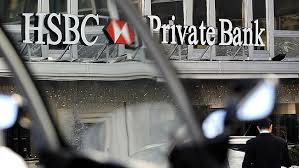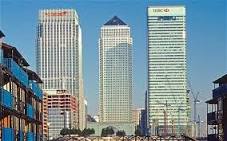Video: https://youtu.be/Q4V8L-98LVY
Why Refusing a Pay Cut May Get You Fire?
HSBC Holdings Plc will impose a global hiring and pay freeze as part of its drive to cut as much as $5 billion in costs by the end of 2017.
The measures, which affect the consumer and investment banking businesses, were outlined in a memorandum received by employees on Friday, Gillian James, a spokeswoman for the bank, said Sunday in an e-mailed statement. Europe’s largest bank, which will release full-year earnings on Feb. 22, is mulling whether to move its headquarters away from London, partly because of the tax burden and tougher regulatory scrutiny.
“This is in line with HSBC’s moves to lower operating costs,” said Richard Cao, a Shenzhen-based analyst at Guotai Junan Securities Co. “HSBC can’t escape from the global economic slowdown and worsening asset quality like other global banks.”
HSBC Chief Executive Officer Stuart Gulliver, 56, in June outlined a three-year plan to pare back a sprawling global network by shutting money-losing businesses and eliminate as many as 25,000 jobs as he seeks to boost profitability. Barclays Plc extended a freeze on hiring new staff indefinitely in December, while European lenders including Credit Suisse Group AG and Deutsche Bank AG are cutting thousands of jobs to shore up earnings.
The moves were reported earlier by Reuters.
The shares fell 1.6 percent to 484.25 pence at 10:10 a.m. in London, extending losses this year to about 9.6 percent. They dropped 12 percent in 2015.
Under its three-year plan, the London-based lender is seeking to reduce the number of full-time employees by between 22,000 and 25,000. In the U.K., the bank may eliminate as many as 8,000 jobs.
As part of its focus on more profitable markets, HSBC is reviewing its operations in Lebanon and may exit the Middle Eastern country, people with knowledge of the matter said earlier this month. The bank is closing its Indian private-banking business, people familiar with that move said in November.
HSBC is close to concluding an eight-month review into the best location for its headquarters, with Hong Kong seen as the leading candidate city. The lender is likely to stay based in London due to the vast logistics of relocating, Martin Gilbert, chief executive officer of Aberdeen Asset Management Plc, told Bloomberg Television in January. Aberdeen is one of the British bank’s biggest shareholders.- Bloomberg
Related posts:





Why Refusing a Pay Cut May Get You Fire?
HSBC Holdings Plc will impose a global hiring and pay freeze as part of its drive to cut as much as $5 billion in costs by the end of 2017.
The measures, which affect the consumer and investment banking businesses, were outlined in a memorandum received by employees on Friday, Gillian James, a spokeswoman for the bank, said Sunday in an e-mailed statement. Europe’s largest bank, which will release full-year earnings on Feb. 22, is mulling whether to move its headquarters away from London, partly because of the tax burden and tougher regulatory scrutiny.
“This is in line with HSBC’s moves to lower operating costs,” said Richard Cao, a Shenzhen-based analyst at Guotai Junan Securities Co. “HSBC can’t escape from the global economic slowdown and worsening asset quality like other global banks.”
HSBC Chief Executive Officer Stuart Gulliver, 56, in June outlined a three-year plan to pare back a sprawling global network by shutting money-losing businesses and eliminate as many as 25,000 jobs as he seeks to boost profitability. Barclays Plc extended a freeze on hiring new staff indefinitely in December, while European lenders including Credit Suisse Group AG and Deutsche Bank AG are cutting thousands of jobs to shore up earnings.
The moves were reported earlier by Reuters.
The shares fell 1.6 percent to 484.25 pence at 10:10 a.m. in London, extending losses this year to about 9.6 percent. They dropped 12 percent in 2015.
Under its three-year plan, the London-based lender is seeking to reduce the number of full-time employees by between 22,000 and 25,000. In the U.K., the bank may eliminate as many as 8,000 jobs.
As part of its focus on more profitable markets, HSBC is reviewing its operations in Lebanon and may exit the Middle Eastern country, people with knowledge of the matter said earlier this month. The bank is closing its Indian private-banking business, people familiar with that move said in November.
HSBC is close to concluding an eight-month review into the best location for its headquarters, with Hong Kong seen as the leading candidate city. The lender is likely to stay based in London due to the vast logistics of relocating, Martin Gilbert, chief executive officer of Aberdeen Asset Management Plc, told Bloomberg Television in January. Aberdeen is one of the British bank’s biggest shareholders.- Bloomberg
Related posts:
Jun 10, 2015 ... At the investment bank, HSBC plans to cut RWAs by a net $130-billion, or 31 per
cent, while “keeping costs flat.” The global banking and ...
Aug 21, 2014 ... Nur Shila faces 12 principal charges in relation to transferring money from the
HSBC Bank accounts to other bank accounts, theft, getting ...
Jul 18, 2012 ... HSBC concealed more than $US16 billion in sensitive transactions to Iran, ...
SHAMED HSBC Bank executives have admitted to allowing Iran, ...
|
Aug 3, 2011 ... LONDON (MarketWatch) — A running tally of planned job cuts by European
banks reached around 40,000 Tuesday, little more than halfway ...
Feb 28, 2012 ... HSBC's annual profits rose 15% to £13.8bn ($21.9bn) in what it called a year ...
The bank said that 2011 was a year of major progress for HSBC.
|






